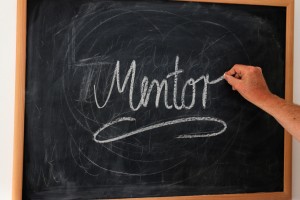Be the caring adult in the life of a child you know
Studies show children reap biggest benefits from multiple adult relationships across a variety of environments
By Gwen Soderberg-Chase
Educators – and parents – have long known that positive interaction with adults is a crucial component in shaping the identity of young people and helping them thrive.
The Minneapolis-based Search Institute, which works with organizations around the world to discover what kids need to succeed, has adopted the term “developmental relationships” to describe the focus of some of its recent research on that topic.
The term comes with a great framework listing hands-on ways to connect with children (see http://tinyurl.com/hmrazxf) for details). But we can boil it down to this simple statement: ALL kids need multiple caring adults in their lives, including family, teachers and community members.
That seems obvious, doesn’t it? And yet we have so many demands on our time, so much that has to be done to satisfy obligations of jobs and families, that it can be easy to overlook this important need.
Oregon legislators in recent years have re-emphasized the importance of early childhood development. That’s because they recognize the value of research conducted by people such as James Heckman, a Nobel prize-winning professor of economics at the University of Chicago. Professor Heckman has published his findings on how investments in early childhood education benefit all of society, leading to less crime and poverty and greater economic prosperity.
One of his conclusions is that we tend to focus on the development of cognitive skills where intelligence can be tested (whether a child can read by a certain age, for example). But at the same time, we are ignoring the development of social skills. Professor Heckman believes this undermines the ability of children to combine collaboration, creativity and persistence with intelligence. It’s an ability that drives success in STEAM (science, technology, engineering, artistic innovation and math), entrepreneurship, business and social prosperity.
According to The National Mentoring Partnership, students who meet regularly with their mentors are 52 percent less likely than their peers to skip a day of school and 37 percent less likely to skip a class. The Search Institute concludes that while a single relationship with an adult can be powerful, young people grow the most when they forge multiple adult relationships across multiple environments.
So what can YOU do? Today, smile at every child, youth and young adult you see and take the time to say “hello.” Call them by name if you know it and ask them how their day is going. Let them know you care and are interested in their well-being.
Tomorrow, consider becoming a volunteer to work with kids. Be a foster grandparent, a SMART reader, a mentor at Casa de Belen, a youth volunteer at your church, the Boys & Girls Clubs of the Umpqua Valley, the YMCA of Douglas County or many other youth-based organizations.
Watch this column in the coming weeks and months to learn about more opportunities to support our kids in Douglas County. They deserve no less than our undivided attention and guidance.
Gwen Soderberg-Chase is the executive director of Douglas County Partners for Student Success, www.dcpss.org. She has been an educator in Douglas County for 38 years. She also serves on the board of directors for the Boys & Girls Clubs of the Umpqua Valley and SMART.
Leave a Reply
You must be logged in to post a comment.